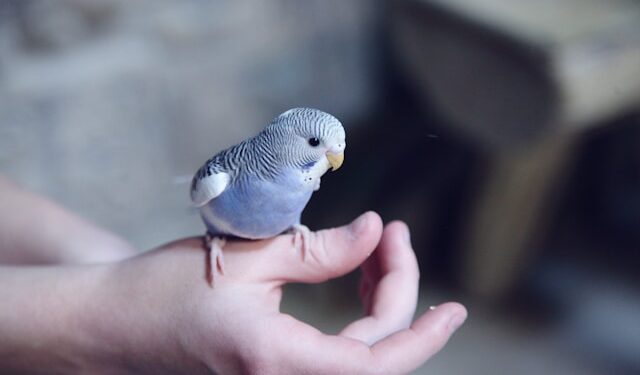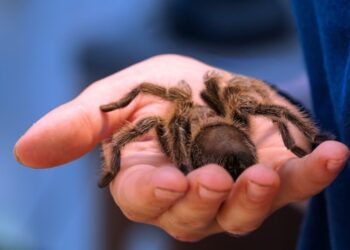Pet birds bring joy, companionship, and beauty to any home, but they require special care to stay happy and healthy. Whether you own a parrot, budgie, cockatiel, or finch, providing proper nutrition, mental stimulation, and a safe environment is crucial. In this guide, we’ll explore essential tips to ensure your feathered friend thrives.
1. Provide a Balanced Diet
A proper diet is key to your pet bird’s overall well-being. While many people assume that birds can live solely on seeds, a more varied diet is necessary for optimal health.
What to Feed Your Bird:
- Pellets: A high-quality pellet diet should make up the majority of your bird’s meals.
- Fresh Fruits and Vegetables: Apples, carrots, spinach, and bell peppers are great choices.
- Grains and Nuts: Whole grains like quinoa and brown rice offer important nutrients.
- Protein Sources: Eggs, beans, and cooked chicken can be beneficial in small amounts.
Foods to Avoid:
- Avocado (toxic to birds)
- Chocolate and caffeine (harmful to the nervous system)
- High-fat, salty, or sugary foods
Providing fresh, clean water daily is just as important as a healthy diet. Make sure to clean food and water dishes regularly to prevent bacterial growth.
2. Create a Comfortable Living Environment
Your bird’s cage plays a crucial role in its overall health. A cramped or improperly set-up cage can lead to stress and health issues.
Choosing the Right Cage:
- Size Matters: A larger cage allows your bird to move freely and stretch its wings.
- Proper Bar Spacing: Ensure the spacing is appropriate for your bird’s size to prevent injury.
- Safe Materials: Avoid cages with toxic paint or rusted parts.
Placement & Maintenance:
- Place the cage in a well-lit, draft-free area with natural light but away from direct sunlight.
- Avoid placing the cage near kitchens, scented candles, or aerosol sprays, as fumes can be toxic.
- Clean the cage regularly, removing waste and replacing bedding to maintain hygiene.
3. Ensure Mental and Physical Stimulation
Birds are highly intelligent creatures that require mental and physical stimulation to prevent boredom and stress.
Toys and Activities:
- Provide variety in toys, including chewable wood, ropes, and puzzle feeders.
- Rotate toys every few weeks to maintain interest.
- Encourage foraging by hiding treats in different parts of the cage.
Exercise and Flying Time:
- Allow your bird time outside the cage daily in a safe, bird-proofed area.
- Provide perches of different textures to keep feet strong and healthy.
- Encourage climbing with ladders and swings.
Music, talking, and interactive play can also help keep your bird entertained and emotionally engaged.
4. Socialization and Bonding
Many pet birds are social creatures that require interaction with their owners or other birds to stay happy.
Building Trust with Your Bird:
- Spend consistent, daily time talking or singing to your bird.
- Use positive reinforcement training with treats and gentle encouragement.
- Teach simple tricks or commands to strengthen your bond.
Preventing Loneliness:
- Some birds, like budgies and cockatiels, thrive with a companion. If you can’t commit to multiple birds, dedicate time for interaction each day.
- Watch for signs of distress, such as excessive feather plucking, screaming, or aggression, which may indicate loneliness or boredom.
5. Regular Health Care and Grooming
A healthy bird is an active and alert bird. Routine check-ups and proper grooming help prevent serious health issues.
Signs of a Healthy Bird:
- Bright, clear eyes
- Smooth, clean feathers
- Active behavior and regular chirping
Common Health Issues to Watch For:
- Respiratory Problems: Wheezing, tail bobbing, or difficulty breathing may indicate illness.
- Feather Plucking: Often due to stress, boredom, or nutritional deficiencies.
- Lethargy or Loss of Appetite: Could be signs of infection or internal issues.
Grooming Essentials:
- Nail Trimming: Overgrown nails can cause discomfort; a vet or an experienced owner should trim them.
- Beak Care: A proper diet and chewable toys help maintain a healthy beak.
- Bathing: Offer a shallow dish of water or mist your bird with water to encourage bathing.
6. Preventing Common Health Issues
Birds can hide illnesses, making it important to be proactive in their care.
Tips for Prevention:
- Take your bird for annual vet check-ups with an avian specialist.
- Ensure a stress-free environment by maintaining a consistent routine.
- Avoid exposure to household toxins such as scented candles, non-stick cookware fumes, and cigarette smoke.
Conclusion
Caring for a pet bird requires dedication, patience, and knowledge. By providing a nutritious diet, engaging toys, proper socialization, and regular health care, you can ensure your bird stays happy and healthy for years to come. If you’re ever unsure about your bird’s health, consult a vet for expert guidance.





